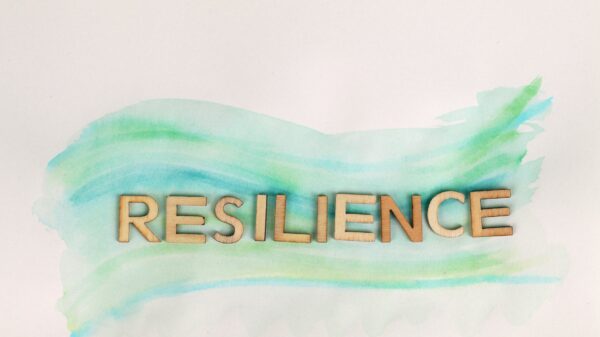Embracing Change Transitions is an inevitable part of life – whether it’s a new job, a move to a new city, or even smaller changes like starting a new hobby. Yet for many, the thought of navigating these transitions can be overwhelming and anxiety-inducing. That’s why we’re here to help you embrace change with confidence! In this blog post, we’ll discuss practical strategies for navigating transitions and overcoming common challenges along the way. So if you’re ready to step out of your comfort zone and thrive in times of change, keep reading!
Introduction to Change
It can be difficult to feel confident when faced with change, especially if the change is unexpected or unwanted. But remember that change is a natural part of life, and how you respond to it can make all the difference in your overall wellbeing.
In this section, we’ll explore what change is, how to deal with it effectively, and why it’s worth embracing rather than resisting. We’ll also dispel some common misconceptions about change so that you can approach it with a more positive outlook.
Understanding Your Emotions During Transitions
When you’re in the midst of a big life transition, it’s normal to feel a roller coaster of emotions. One minute you might feel excited about the change, and the next minute you might feel totally overwhelmed. That’s because change can be scary, even when it’s something you really want.
But here’s the thing: if you can understand and accept your emotions during this time, it will be a lot easier to get through the transition with confidence. So let’s take a closer look at some of the most common emotions you might experience during a big change, and how to deal with them.
Excitement: When you first start thinking about a major change, it’s natural to feel excited about all the possibilities. This is a great emotion to harness! Use your excitement to fuel your motivation as you start planning for the transition.
Anxiety: As the reality of the change starts to set in, it’s also normal to feel some anxiety. After all, change can be unpredictable and scary. But try not to let your anxiety take over. Instead, use it as motivation to plan and prepare as much as possible. Write out your goals, make a list of things you need to do, and find someone you trust to talk to about your fears.
Sadness: It’s also common to feel sad when making a big change. You might be leaving behind people and places you love, or saying goodbye to a stage of life that was really
Developing Self-Confidence
The ability to face change with confidence is an essential life skill. Whether you’re dealing with a personal transition, such as starting a new job or moving to a new city, or a more global one, like adapting to a changing climate or the shifting political landscape, having self-confidence can make all the difference.
So how can you develop self-confidence? Here are a few tips:
1. Believe in yourself. This may seem like obvious advice, but it’s worth repeating: if you don’t believe in your own abilities, it’ll be hard to face change with confidence. So take some time to think about what you’re good at and what you’re proud of – this will remind you that you have the strength and resilience to cope with whatever comes your way.
2. Be prepared. Another key to facing change with confidence is being prepared for it. If you know what’s coming and have a plan for dealing with it, you’ll feel much more capable than if you’re caught off guard. So do your research, make a list of things to do or resources to consult, and give yourself the peace of mind that comes from being prepared.
3. Take small steps. When confronted with a big change, it can be helpful to focus on taking small steps rather than trying to accomplish everything all at once. Not only will this help prevent overwhelm, but it’ll also help build your confidence as you see each mini-goal achieved. And
Making a Plan in the Face of Uncertainty
When it comes to making a plan in the face of uncertainty, the best thing you can do is focus on what you can control. Take a look at your goals and objectives and consider how you can best achieve them given the current situation. Make a list of possible actions and solutions and narrow it down to the most feasible ones.
Once you have a plan, it’s important to be flexible and open to change. Things may not always go according to plan, but if you’re prepared for the worst-case scenario, you’ll be able to adapt and overcome any challenges that come your way.
Tips for Coping With Change
1. Acknowledge that change is hard – It’s okay to feel sad, scared, or angry when faced with change. Allow yourself time to grieve the loss of what was, and be patient with yourself as you adjust to the new reality.
2. Create a support network – Talk to friends or family members who can be supportive as you go through this transition. Join online forums or groups dedicated to people experiencing similar changes.
3. Be proactive in planning for change – If you know a change is coming, take some time to sit down and think about how it will impact your life. What do you need to do to prepare for it? What are your goals during this transition?
4. Lean into your strengths – During times of change, it’s important to focus on what you’re good at and what makes you happy. This can help anchor you as everything around you feels like it’s in flux.
5. Make time for self-care – Change can be stressful, so make sure to schedule regular check-ins with yourself. Take time for activities that relax and rejuvenate you, whether that’s reading, going for walks, or listening to music.
Learning to Embrace the Unknown
When faced with change, it’s natural to feel uncertain and even scared. But, as the old saying goes, change is the only constant in life. Learning to embrace the unknown can help you navigate transitions with confidence.
Here are a few tips for learning to embrace the unknown:
1. Acknowledge your fears. It’s OK to be afraid of change. Recognizing and admitting your fears can help you move through them more easily.
2. Trust yourself. You have the strength and ability to handle whatever comes your way. Change can be an opportunity for growth and personal development. Trust that you will be able to handle whatever comes your way.
3. Be flexible and open-minded. Be willing to try new things and go with the flow. Don’t get too attached to any one outcome or plan; be prepared to adapt as needed.
4. Keep a positive attitude. A positive outlook can help you see the potential in every situation, even when it’s not immediately apparent. Approach change with excitement and an open mind, and you’ll be better able to weather any storm that comes your way
Reflection on Positive Aspects of Change
When we are open to embracing change, we can find many positive aspects that come along with it. One of the most rewarding things about change is that it gives us an opportunity to grow and learn new things. It can also be a chance to deepen our relationships with others, as we support each other through transitions. Change can also bring new opportunities for adventure and self-discovery.
When we approach change with confidence, we are more likely to see the positive aspects and find opportunities for growth. Rather than feeling overwhelmed or afraid, we can take comfort in knowing that change is a natural part of life. By staying open-minded and flexible, we can navigate changes with grace and ease.
Conclusion
Change can be intimidating. However, by embracing change and navigating transitions with confidence, you can equip yourself to not just face, but also conquer the challenges that come with it. Finding a support system and using resources such as counselors or therapists can help ease the stress accompanying changes. Efforts in deep self-reflection will enable you to discover skills within yourself that could potentially serve as tools for successful life transitions. The key here is remaining open-minded while maintaining realistic expectations about what lies ahead –– when faced with change, no one has all of the answers right away… But they’ll eventually emerge through enduring courage and patience!










